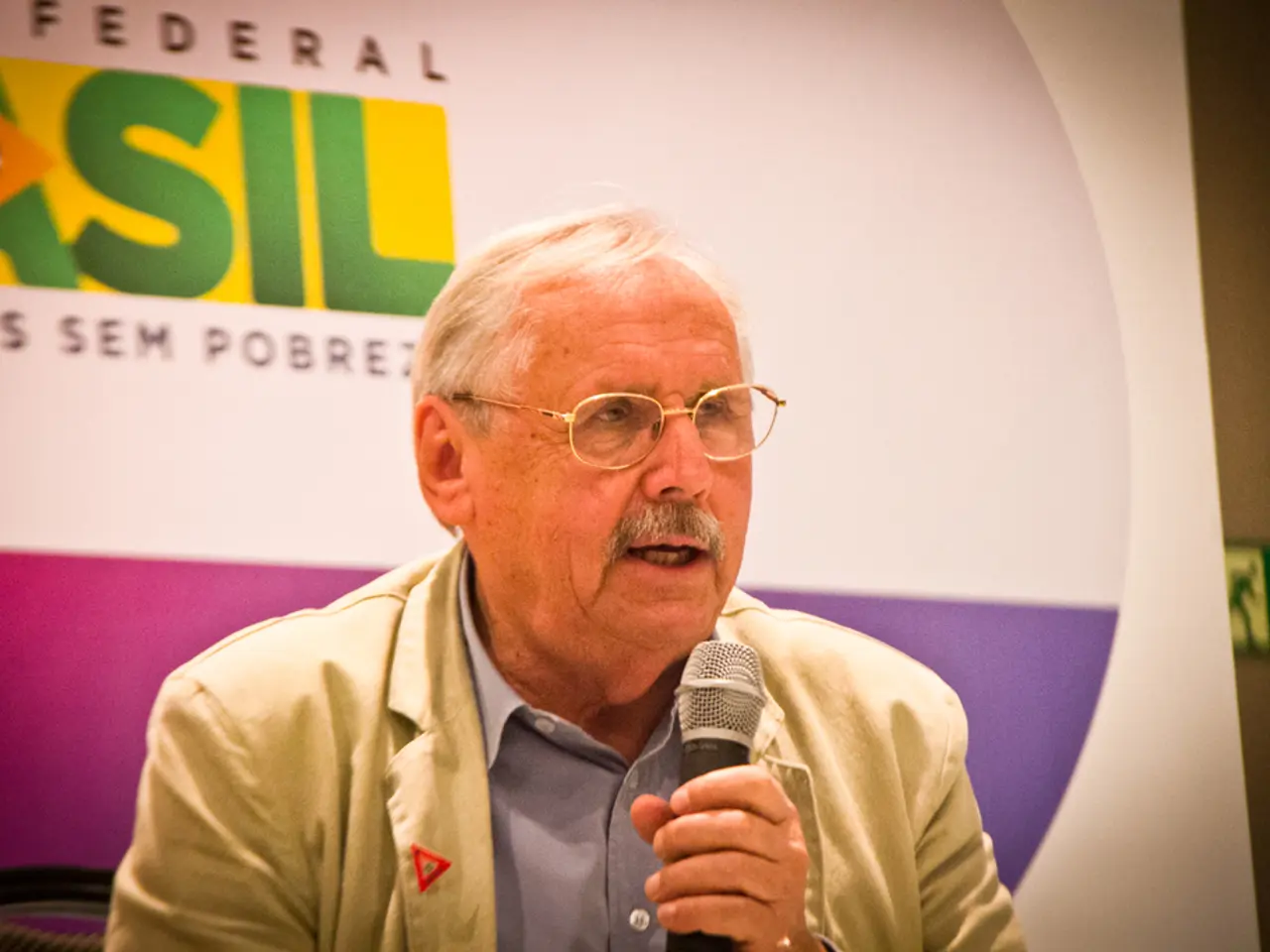After the retreat of Brosius-Gersdorf, what happens next?
In a significant turn of events, Frauke Brosius-Gersdorf, the Social Democratic Party's (SPD) candidate for a judgeship at Germany’s Federal Constitutional Court, has withdrawn her candidacy on August 7, 2025. This decision was prompted by strong opposition from parts of the CDU/CSU parliamentary group, which would prevent her election by the required two-thirds majority in the Bundestag [1][2].
The Two-Thirds Majority Requirement
The election of Federal Constitutional Court judges in Germany requires a two-thirds majority vote for confirmation by the Bundestag and Bundesrat [3]. Brosius-Gersdorf’s candidacy was blocked due to internal CDU/CSU resistance, stemming from her positions on abortion, compulsory COVID-19 vaccination, and controversy concerning alleged plagiarism [3][4][5].
Seeking a Solution
With Brosius-Gersdorf's withdrawal, the coalition partners are now faced with the challenge of finding a satisfactory resolution to ensure the election of the necessary two-thirds majority in the Bundestag for their candidates. Chancellor Friedrich Merz and CDU/CSU leader Jens Spahn have indicated that they are confident the coalition will find a solution and have not ruled out putting forward a different candidate after the Bundestag’s summer recess [1][5].
Bitterness and Rejection
In her statement, Brosius-Gersdorf expressed bitterness, feeling supported by the SPD, Greens, and Left, but let down by the Union faction. She also criticized disinformation and defamation campaigns organized on social networks, some of which were AI-generated [6].
Union Faction's Response
Parts of the Union faction had reservations about Brosius-Gersdorf due to her stated positions, and the faction has been under criticism for not engaging substantively with her topics and for failing to invite her to a faction meeting [7]. The Union faction has also rejected talks with the Left, whose votes could be necessary to secure a two-thirds majority [8].
Calls for Cooperation
The Greens and Left have expressed a desire to ensure that the candidates nominated by the Union and SPD, Günter Spinner and Ann-Katrin Kaufhold respectively, find majorities in the Bundestag without relying on AfD votes [9]. Lars Klingbeil, SPD leader and Vice-Chancellor, has demanded that the Union ensures such incidents do not happen again [10].
Jens Spahn's Role
Jens Spahn, Union faction leader, is under criticism from the Greens and Left for his role in the Federal Constitutional Court judge election, with Britta Haßelmann and Katharina Dröge, Green faction leaders, describing him as "unsuitable" [11]. Spahn has expressed regret about the situation and seeks a joint solution with the coalition partner.
In summary, Brosius-Gersdorf's withdrawal jeopardized the two-thirds majority needed for her election. The coalition partners plan to negotiate and present alternative candidates to reach the necessary majority and preserve the overall nomination package, but no new candidate has been publicly confirmed yet [1][2][3][5]. The situation poses a significant challenge for coalition stability and the court’s appointments.
[1] Brosius-Gersdorf withdraws from Federal Constitutional Court nomination [2] SPD demands Union loyalty over Federal Constitutional Court nomination [3] How Federal Constitutional Court judges are elected in Germany [4] Plagiarism allegations against Brosius-Gersdorf [5] CDU/CSU's internal resistance to Brosius-Gersdorf [6] Brosius-Gersdorf's criticism of disinformation and defamation campaigns [7] Brosius-Gersdorf criticizes Union faction [8] Union faction rejects talks with the Left [9] Greens and Left demand AfD-free majority for candidates [10] Klingbeil demands Union ensures no repeat incidents [11] Green faction leaders describe Jens Spahn as "unsuitable"
- The withdrawal of Frauke Brosius-Gersdorf, the SPD's candidate for the Federal Constitutional Court, has necessitated a search for an alternative solution to secure the two-thirds majority needed for their candidates' election, given the internal CDU/CSU resistance and the subsequent blockage of Brosius-Gersdorf's confirmation.
- As a result of the withdrawal, the coalition partners, including Chancellor Friedrich Merz and CDU/CSU leader Jens Spahn, are engaged in negotiations to present alternative candidates who might garner the necessary majority, thus preserving the overall nomination package without relying on AfD votes, as demanded by the Greens and Left.





